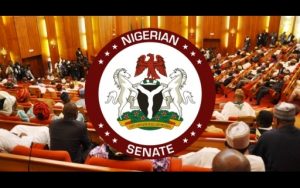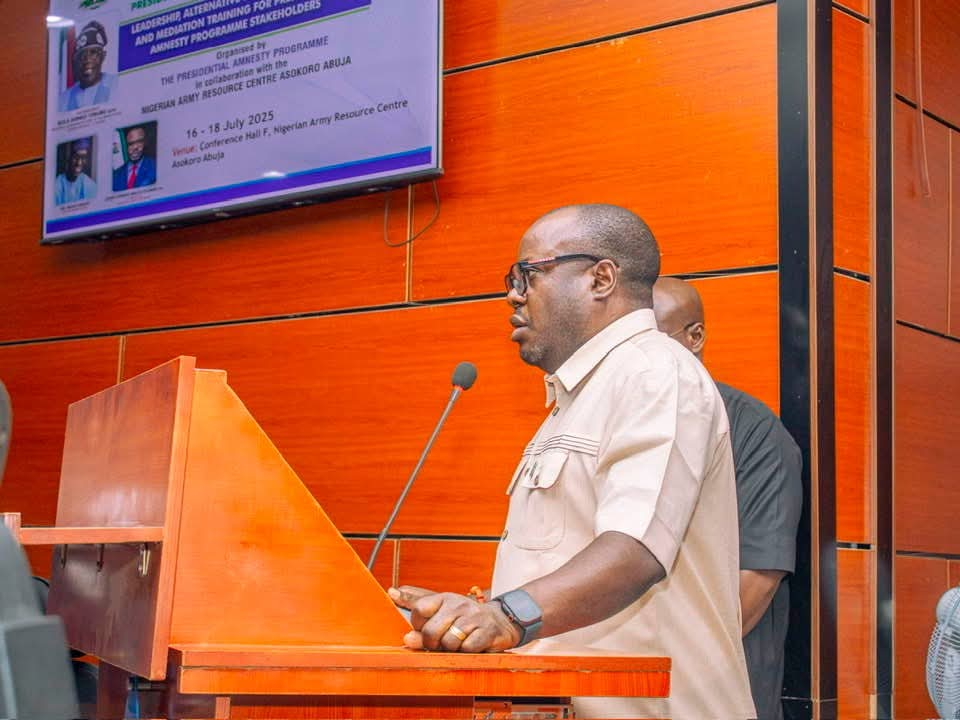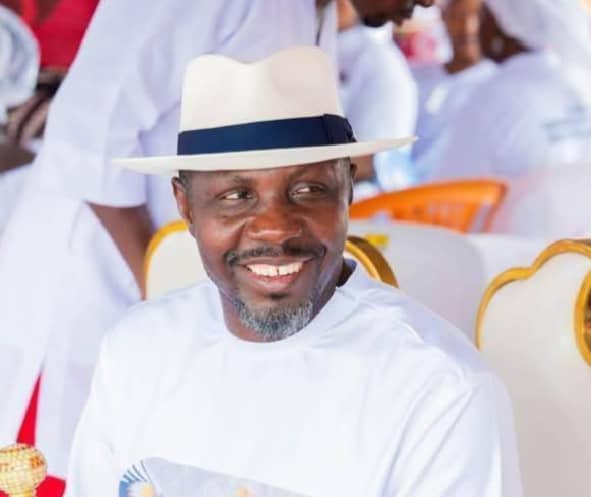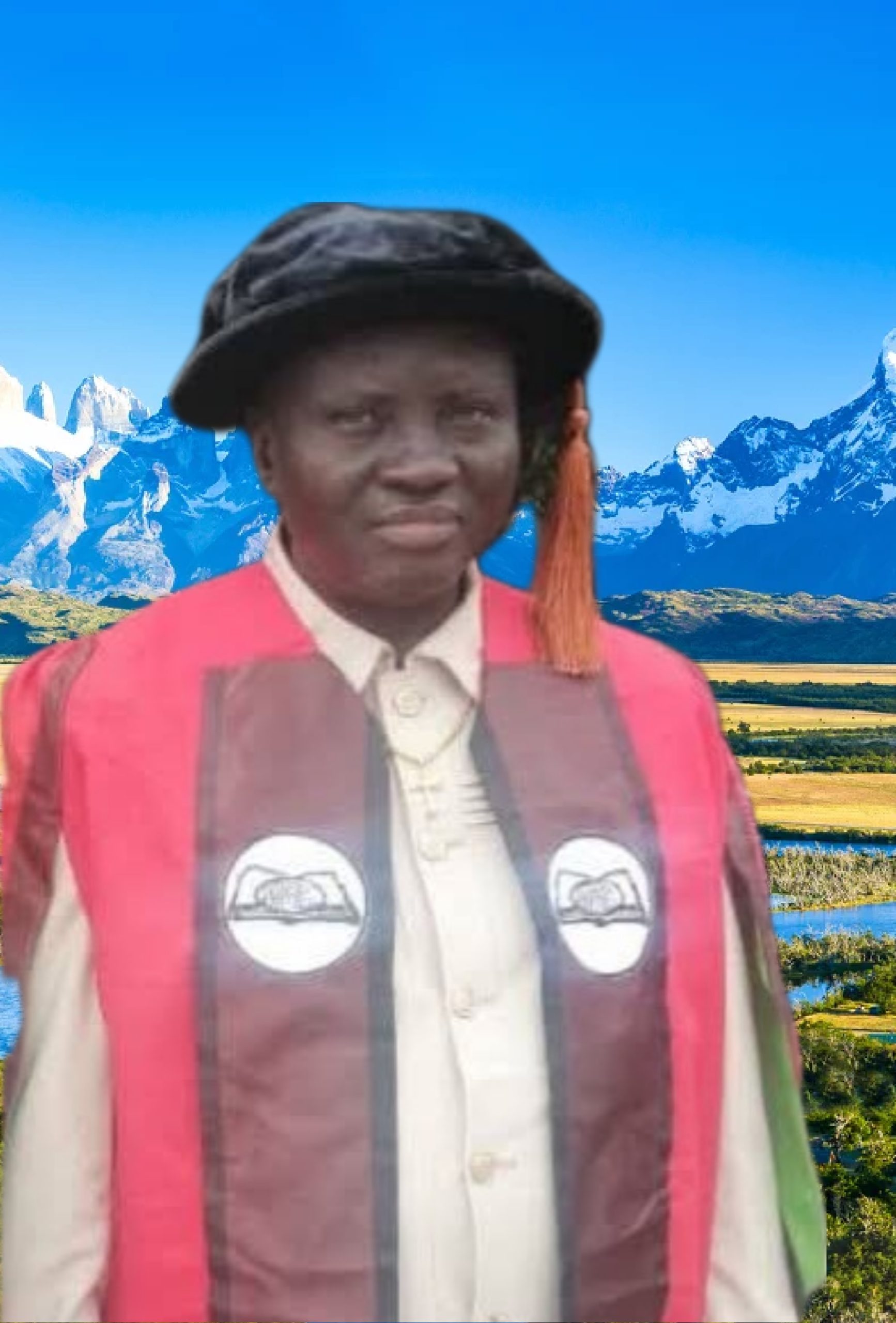Columns
SOUTH-SOUTH DEVELOPMENT COMMISSION: GOOD FOR THE REGION, NOT THE BEST FOR IJAW NATION

SOUTH-SOUTH DEVELOPMENT COMMISSION: GOOD FOR THE REGION, NOT THE BEST FOR IJAW NATION
By Tobouke JEMINE
My recent intimation with a video clip of the
 the immediate past Governor of Bayelsa State and current Senator Representing Bayelsa West, Chief Henry Seriake Dickson, in which he was advocating for the establishment of a South-South Development Commission, chased the natural guest of the night from my bedroom — an issue I’ve often pondered.
the immediate past Governor of Bayelsa State and current Senator Representing Bayelsa West, Chief Henry Seriake Dickson, in which he was advocating for the establishment of a South-South Development Commission, chased the natural guest of the night from my bedroom — an issue I’ve often pondered.
Sen. Dickson eloquently clarified that Commissions like OMPADEC and the NDDC were established to meet the demands of resource-based areas, and went on to cite states like Abia, Imo, and Ondo, which are not part of the South-South region, but are beneficiaries of commissions like the NDDC.
Our legislators may give their stamp of approval to this Bill. But I do not think that, at this point, South-South Development Commission should be prioritized by the Izon-blooded Legislators in the national halls of lawmakers. I see something better, and I hope, they will see something far better.
I take this diversion from the Templates of Our Socio-Political and Economic History. HISTORY is replete with the enormous sacrifices the IJAW NATION has been making on behalf of the ethnic nationalities in the SOUTH-SOUTH and the NIGERDELTA as a whole, right from the days of anti-colonialism. Our revered father, Chief Harold Dappa-Biriye was in his twenties when he began to fight the cause of the minorities of the Niger-Delta.
Pa Dappa-Biriye was a prominent figure in the fight for minority rights in the Niger Delta region. He founded the Niger Delta Congress, a socio-political organization aimed at uniting the ethnic nationalities of the Niger Delta to achieve economic and political autonomy . In response to the agitations he spearheaded, in 1957, the British Government appointed Sir Henry Willink, a British lawyer and constitutional expert to look into the concerns and fears of the minorities of the emerging nation.
The establishment of the Niger Delta Development Board and the creation of Rivers State in 1967 were offsprings of the sweats and blood of the Harold Dappa-Biriyes, and the Isaac Boros of the Ijaw Nation. They championed the rights of all the ethnic groups in the Niger Delta.
Adaka Boro did not call his Fidel-Castroic dream Ijaw Republic, but he called its THE NIGER-DELTA REPUBLIC, giving emphatic facts to the Fact that the IJAW MAN is accommodating, hospitable, and inclusive in his socio-political orientation. But have we being receiving symbiotic responses for our age- long brotherly kindness?
Consider the civil and environmental rights movement of Kenule Saro-Wiwa! His legacy is tied to the struggles of the Ogoni people. His identification with the plights and agonies of the Ogonis, rather than the broader Niger Delta region did immense justice to the Ogoni Bill of Rights. The Movement for the Survival of the Ogoni People (MOSOP), gained international recognition because Saro-Wiwa was visionary, focused, specific and single-coloured in his strides for the Survival and Liberty of his people.
That Ogoniland is still in the wilderness is not the making of Saro-Wiwa, but the making of men and women who are not brave enough, who are not willing to respond to the mantle of Ken Saro-Wiwa.
But my main task here is to point out that the IJAW NATION SHOULD PRIORITIZE SOCIO-ECONOMIC AND POLITICAL DEVELOPMENT UNDER THE IJAW IDENTITY, rather than solely associating with the broader Niger Delta or South-South regions. This distinction would allow the Ijaw people to address their unique challenges and advocate for their specific interests.
Today, we can tell that all the agencies that the Nigerian government has been creating to address our challenges and plights, even before the British flag was hoisted, have yielded no sustainable results in our lives and lands; our neighbours who did not identify with our lethal agitation for freedom and development are now fighting to occupy the Oval Office of the Presidential Amnesty Programme, and We’ve been mocked and relegated to the back pew in Rivers — a state that flowed into existence through our rivers and rivulets of sweats and blood.
Caution: shouldn’t we re-assess our actions, retrace our steps, return to our ancestral harmony, ocean of sagacity and put the IZON HOUSE inorder before we continue to play the Big Brother role in the affairs of the Niger Delta and the South-South?
WE SHOULD AGITATE FOR RIVERINE NIGER DELTA DEVELOPMENT MINISTRY.
Or better still, to be more specific, RIVERINE NIGER-DELTA INFRASTRUCTURAL DEVELOPMENT COMMISSION.
To the Ijaw Nation, I say this, and you do not need to be told that 95% of Ijaw People live in the aquatic, marine, littoral, and coastal regions of the earth of Africa.
But establishing Aquatic Niger Delta Development Commission is a first-layer solution to the developmental challenges of Ijawland. The lack of infrastructures in our communities cannot be effectively tackled by the realities in the Nigerian system. STATE creation and the implementations of the Recommendations of the Mitee-Led Technical Committee on the Niger Delta are the PANACEA to our plights.
If, in this nation, a people are clamouring for a Separate Sun for the East, what strong reasons do we have not to seek and knock for the righteousness of Toru-Ebe and Oil Rivers States? But we are here in the name of Development Commission…
Hence, we appeal to the Sen.Seriake Dicksons of Bayelsa West, the Hon. Donald Ojogos of Ilaje/Ese-Odo Federal Constituency in Ondo State, the Sen. Ipalibo Banigos of Rivers West Senatorial District, the Hon. Julius Pondis of Burutu Federal Constituency in Delta State, and their legislative comrades across the creeks and wetlands of the Niger Delta to work in unison and bring this Great Bill into fruition.
Justice!Peace!!! Progress!!! for Ijaw Nation.
© Tobouke Jemine
October 4, 2024
Columns
Chief Denis Otuaro, the Guiding Star of PAP

By: Professor Binebai
The Niger Delta has found a beacon of hope in Chief Dr. Dennis Otuaro, a leader of unimpeachable integrity, courage, and vision. As the helm of the Presidential Amnesty Programme (PAP), he has emerged as a champion of transformation, inspiring a region and a nation with his unwavering commitment to empowerment and progress.
In the realm of Nigerian leadership, there are those who leave an indelible mark on the sands of time, and Chief Dr. Dennis Otuaro is one such luminary. As the helm of the Presidential Amnesty Programme (PAP), he has etched a narrative of hope, redemption, and triumph, illuminating the path for the people of the Niger Delta. This tribute is a celebration of his extraordinary leadership, vision, and unwavering commitment to the cause of empowering the youths and transforming the region.
Chief Denis Otuaro’s stewardship of the Presidential Amnesty Programme (PAP) has indeed been a renaissance, a majestic sunrise after a long, dark night, as he infuses the initiative with the radiance of a new dawn.
Like the mythical Anansi, the wise and cunning spider of West African folklore, Otuaro’s leadership has woven an intricate web of hope and opportunity, capturing the challenges of the Niger Delta and transforming them into a rich mosaic of promise and progress. His vision, akin to that of the venerable Oracle of Delphi, has deciphered the complexities of post-conflict reconstruction, guiding the demobilised youths through the labyrinth of uncertainty, and into the bright light of empowerment and redemption.
Otuaro’s journey has been sustained by a resolute commitment to the cause, his leadership style a masterful blend of courage, wisdom, and compassion. His tenure has been marked by a symphony of progress, as the PAP, under his guidance, has orchestrated a harmonious balance of pacifism and pragmatism, transforming the region into a veritable Garden of Eden.
Like Athena, the Greek goddess of wisdom, Otuaro wields the power of transformation, his touch turning the arid landscape of despair into a lush oasis of hope and prosperity. His leadership has become a byword for sagacity, a testament to the transformative power of vision, courage, and compassion.
In the pantheon of Nigerian leaders, Otuaro’s name shall be etched alongside the greats, his legacy a shining testament to the indomitable human spirit, as he continues to weave a new narrative of hope, redemption, and triumph for the people of the Niger Delta.
The Niger Delta has found a leader of repute, a leader of courage, a leader of transformation, a leader of goodwill in the PAP. Let egocentric economic buccaneers and demonic agencies stop their campaign of calumny against this leader of glory.
To those who seek to undermine his efforts, we say: let envy and malice be silenced! Let the progress of the Niger Delta be the benchmark for greatness! Let Otuaro’s leadership be the inspiration for a new generation of leaders!
Columns
A Legendary Legacy: The Enduring Odyssey of High Chief (Dr.) Government Oweizide Ekpemupolo

By: Professor Ben Binebai
In the realm of Nigerian leadership, one name resonates with mythical significance – High Chief (Dr.) Government Oweizide Ekpemupolo, affectionately known as Tompolo. Born on 12 April 1971, in Warri, Delta State, Tompolo has etched his name in the annals of history, leaving an indelible mark on the Niger Delta region. As a former militant commander of the Movement for the Emancipation of the Niger Delta (MEND) and chief priest of the Egbesu deity, he has navigated the treacherous waters of war and peace, leveraging his remarkable journey to bring succour and development to his people.
Tompolo’s metamorphosis from a militant leader to a peace advocate is a testament to his unwavering commitment to the progress of the Niger Delta. His decision to embrace the Amnesty Programme in 2009 marked a turning point, as he laid down arms and picked up the mantle of transformation. Today, he is revered as a hero, celebrated for taming the turbulent waters of the Creek boys and settling major political crises in the region. By putting the Ijaw image on the Nigerian map, Tompolo has redefined the narrative, showcasing the rich cultural heritage and resilience of the Ijaw people to the world.
A nationalist and statesman emerging from the boiling pot of agitation in the Niger Delta, Tompolo has consistently demonstrated his commitment to the development and progress of his people. His agency operates in close collaboration with the government, working tirelessly to implement projects and initiatives that benefit the Niger Delta region. His leadership style is characterised by quiet strength, strategic thinking, and an unwavering commitment to the progress of his people. His efforts have earned him recognition and accolades from various quarters, solidifying his position as a dependable pillar of the Ijaw nation.
As the last voice of the Ijaw nation, Tompolo’s legacy continues to inspire hope and progress for generations to come. With institutions established for national economic stability and prosperity, his impact will be felt for years to come. Tompolo’s story serves as a beacon of hope and resilience, inspiring his people to strive for greatness.
God bless this emergent leader of the Ijaw nation.
Columns
YOUNA: WARRI CRIES FOR PEACE AND JUJUSTICE

By: Ben Binebai
In the Niger Delta region of Nigeria, a city cries out for peace, justice, and unity. Warri, a land of rich cultural heritage and economic significance, has been plagued by recurring crises, sparked by provocative actions and claims of ownership by the Itsekiri group. The cry of Warri is a call to action, a reminder that our diversity is a strength, not a weakness, and that our common humanity is worth fighting for.
The Ijaw, Urhobo, and Itsekiri communities have coexisted in Warri for centuries, sharing a rich cultural heritage and a deep connection to the land. Occasionally uniting but deeply disunited because power and hegemony have often overshadowed their shared humanity, the people of Warri yearn for a future where their differences are celebrated, and their commonalities are the foundation of their unity. Warri’s significance extends beyond its current boundaries, as it has been a hub of economic and cultural activity for centuries. Before 1952, Warri was a thriving commercial centre, with the Ijaw, Urhobo, and Itsekiri communities contributing to its growth and development.
The city’s strategic location and access to the Niger Delta’s vast resources made it an attractive location for trade and commerce. Understanding Warri’s rich history and cultural heritage is essential to finding a lasting solution to the crisis.
It is time for truth to prevail to offer a lasting solution to the Warri crisis. The canoe of godfatherism should be withdrawn for the rule of law and for peace and progress to triumph.
The lie of exclusive ownership of Warri resists termination due to several factors, including:
Outdated court judgments: The Itsekiri establishment continues to rely on outdated court judgments, such as the 1925 judgment, to support their claim of ownership, despite subsequent judgments repudiating its validity.
Lack of political will: Successive governments have failed to address the problem and take the right and just decision, allowing the crisis to persist.
Absolutist claims: The Itsekiri claim is absolutist, while the Urhobo and Ijaw claims are limited, recognising ownership of portions of Warri by other communities.
Historical narratives can be deeply ingrained*: People’s understanding of their history and identity can be shaped by long-standing narratives, making it hard to change their perspectives.
Emotions and biases can override facts: When emotions and biases are strongly tied to a particular narrative, people may resist changing their views, even in the face of contradictory evidence.
Power dynamics can influence narrative control: Those in positions of power may use their influence to shape and maintain certain narratives, making it harder to correct lies and misconceptions.
Moreover, leadership plays a crucial role in shaping the future of Warri. As the saying goes, “When leaders refuse to embrace sacrifice, society dies.” Leaders who prioritise the greater good, make tough decisions, and invest in the future can help build a more harmonious and prosperous society. It is time for the leaders of Warri to put the needs of their people first and work towards a brighter future.
The cry of Warri is a call to action, a reminder that our diversity is a strength, not a weakness. Let us work towards a brighter, more harmonious future, where the beauty of our differences is celebrated, and our common humanity is cherished. May the cry of Warri be heard, and may we rise to the challenge of building a better tomorrow for all its people.






